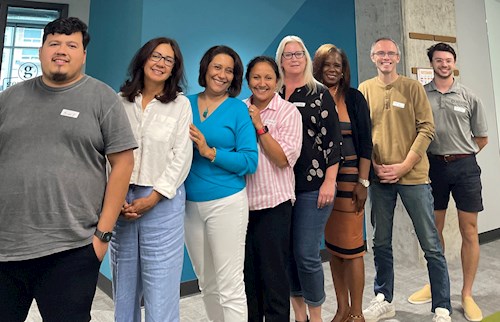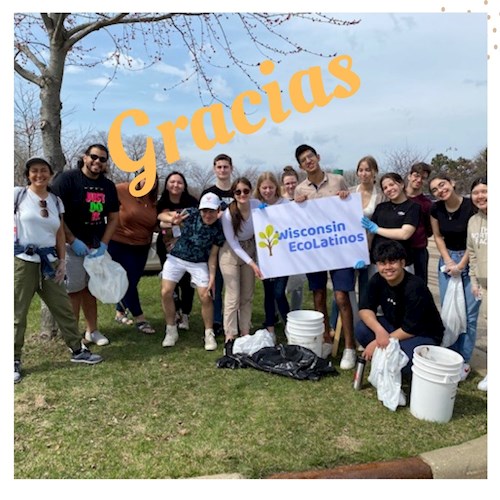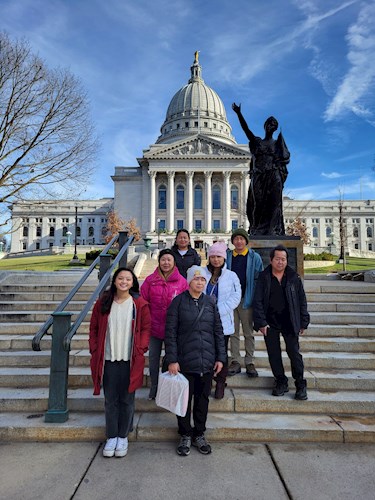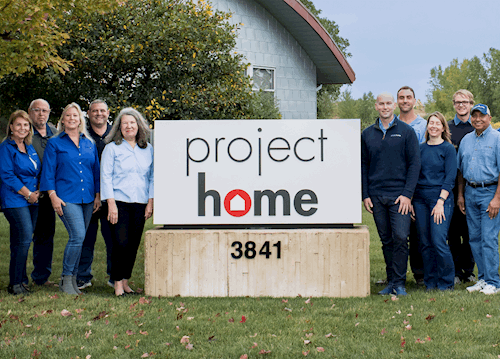

The Home Energy Guides program is a collaboration between the Office of Energy & Climate Change and local community-based organizations, aimed at helping Dane County residents access energy efficiency, electrification, and weatherization programs. The goal is to have a real person from our community help residents participate in these programs by providing energy concierge and advocate services.
We have partnered with several organizations you may already see in your community! We've trained their outreach teams in what programs are available for households in Dane County based on income qualifications and other factors. The outreach teams at each of these organizations can provide basic information on Focus on Energy and federal home energy rebates, as well as Weatherization Assistance. They are also your direct link to connecting with a Home Energy Guide.
A Home Energy Guide is not a manual or an online resource, they are people in real life that work with Wisconsin EcoLatinos and The Hmong Institute! Each Guide has been trained to provide one-on-one, comprehensive support to residents seeking to access Focus on Energy and federal home energy rebates and weatherization assistance.

Home Energy Guides are available for assistance and advocate for you at every stage, from application processes to connecting with qualified contractors. You can think of them as your home energy concierge. They have received over twenty hours of home energy efficiency and communications training, including a walk-through of a home with a home energy auditor. They also received training in what programs are available for different households.
With this information, Guides assess interested households for program eligibility, direct them to services that might improve the comfort and safety of their homes, and help schedule and organize contractors. They can explain the benefits of home efficiency and electrification upgrades in easy-to-understand terms and help residents navigate the application processes. Guides meet monthly with each other to exchange ideas, information, and learn how to most effectively serve residents
Are you looking for tools to help you communicate the benefits of Home Energy Rebates? Below are resources to share with your community.




Due to aging or poorly maintained homes and lower average incomes, many low-income households across Dane County experience high energy bills and uncomfortable living conditions. Although the average American household spends about 3.5% of its income on energy, households experiencing poverty spend more than twice that, placing an unfair burden on those least able to afford it.
Improving energy efficiency and electrifying homes can help close that gap. These upgrades not only lower utility bills but also create safer, healthier living environments. Poor indoor air quality and temperature fluctuations contribute to serious health problems, accounting for 14% of U.S. healthcare costs. Simple improvements like air sealing and insulation have been shown to reduce asthma-related emergency room visits by up to 12%.
The majority of Wisconsin households could benefit from home energy and electrification upgrades that reduce costs, improve comfort, and support long-term health and well-being. Our aim is to ensure everyone has access to energy efficiency improvements, lowering the cost of utility bills, creating safer and more comfortable homes, and reducing emissions at the same time.